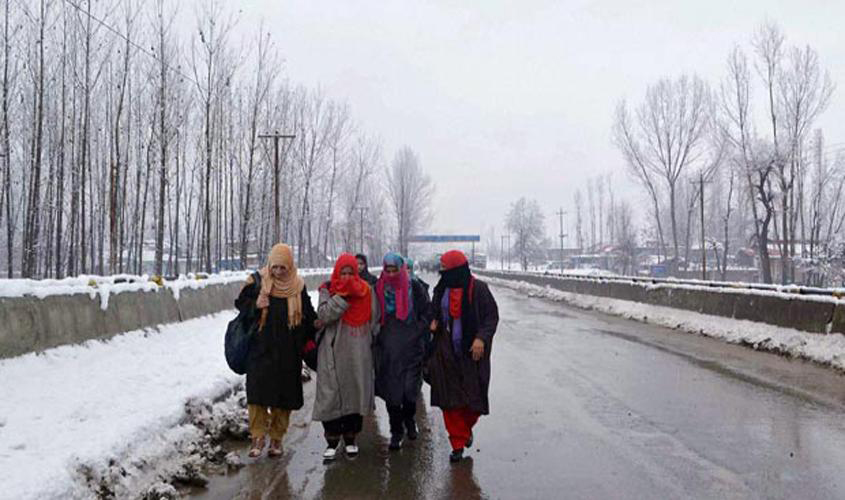 News reporting on terror attacks and communal incidents couldn’t have been more conflicting and disturbing. It brings into question some of the fundamental issues that our society is burdened with and the dangers that lie there. Some channels went to great lengths to emphasise that the driver of the pilgrims’ bus, which was attacked near Amarnath by a group of terrorists happened to be a Muslim named Salim Sheikh. While news channels made a beeline to interview Sheikh in the aftermath of the attack, it was difficult to ignore the subtle messages being packaged by panellists and anchors alike on this issue. This particular episode was presented as an example of a person rising above religious barriers and saving the lives of 50 individuals on that bus. Salim Sheikh has now become a poster boy of Hindu-Muslim unity, with parties jumping to honour or celebrate him. Thousands of Hindus and Muslims in this country have worked together in times of adversity in the past and will do so in the future as well. From Field Marshal K.M. Cariappa to Brigadier Muhammad Usman, the country is dotted with references of people who have served this nation.
News reporting on terror attacks and communal incidents couldn’t have been more conflicting and disturbing. It brings into question some of the fundamental issues that our society is burdened with and the dangers that lie there. Some channels went to great lengths to emphasise that the driver of the pilgrims’ bus, which was attacked near Amarnath by a group of terrorists happened to be a Muslim named Salim Sheikh. While news channels made a beeline to interview Sheikh in the aftermath of the attack, it was difficult to ignore the subtle messages being packaged by panellists and anchors alike on this issue. This particular episode was presented as an example of a person rising above religious barriers and saving the lives of 50 individuals on that bus. Salim Sheikh has now become a poster boy of Hindu-Muslim unity, with parties jumping to honour or celebrate him. Thousands of Hindus and Muslims in this country have worked together in times of adversity in the past and will do so in the future as well. From Field Marshal K.M. Cariappa to Brigadier Muhammad Usman, the country is dotted with references of people who have served this nation.
While some may argue that there is nothing wrong with merely stating the fact, the political drama surrounding the attack and the aftermath was deeply disturbing. While some upheld Kashmiriyat, others questioned the government as to why the attack had taken place, despite accurate intelligence reports warning of an attack. Others argued that the attack exposed the dark side of the crisis in Kashmir; the language we have become accustomed to in India today. News entities have taken up the task of becoming the flag-bearers of moral conscience of the country today. News channels are missing the point here—they are here to deliver news, put the facts on the table and let the audience decide. Rather than doing this, they are dictating opinions on key policy issues outside their domain.
Many would like to present the attack as a Hindu-Muslim matter, but that would serve the purpose of those across the border.
Salim Sheikh did the extra-ordinary act of saving the lives of many at a time when his own nerves were caught in between the cross-fire between terrorists and the armed forces. However, there is certainly a need to avoid stereotyping and jingoism while reporting such sensitive cases. The attack on the pilgrims was a cowardly act, which is highly condemnable. It is certainly the work of those who want to fan communal hatred in Kashmir, where the situation is volatile and disturbed. The media needs to avoid getting trapped in the web of those who want to disturb communal harmony. There are many who would like to present this as a Hindu-Muslim matter, but this would only serve the purpose of those across the border, destabilising Kashmir. Recent incidents of lynching, riots in different parts of country in the last ten years have shaken the social fabric of the country. War-mongering on news channels over India’s tensions with China over Bhutan, and our on-going cross-border tensions with Pakistan is unlikely to reap any benefits, other than escalation of tensions. Such posturing is also ill-timed, given India’s defence constraints due to corruption and policy paralysis in the past decade. The defence forces are under immense pressure
The Congress vice president’s recent statement blaming the J&K and the Central governments for the attack, is ill-timed and not well though out. His meeting with the Chinese and Bhutanese ambassadors and the political messaging that they wanted to send out have left the nation unconvinced of his intentions. Similarly, the Opposition needs to understand that our society is undergoing extreme transformation and it needs to strategise accordingly. Transparency and clarity are essential for the Opposition if it hopes to regain lost ground. The Congress needs to stop sending conflicting signals and needs transparency, something it struggles with daily. The Congress stand on the release of the Madhur Bhandarkar’s movie titled Indu Sarkar, depicting the dark days of Emergency, only implicates the Congress party and the government of the time in the excesses committed between 1975 and 1977. Instead, the Congress could learn from its mistakes. Similarly, the media as an institution has been significant from the days of the Raj. It is important that it should not arrogate to itself powers that will undermine it in the future.

